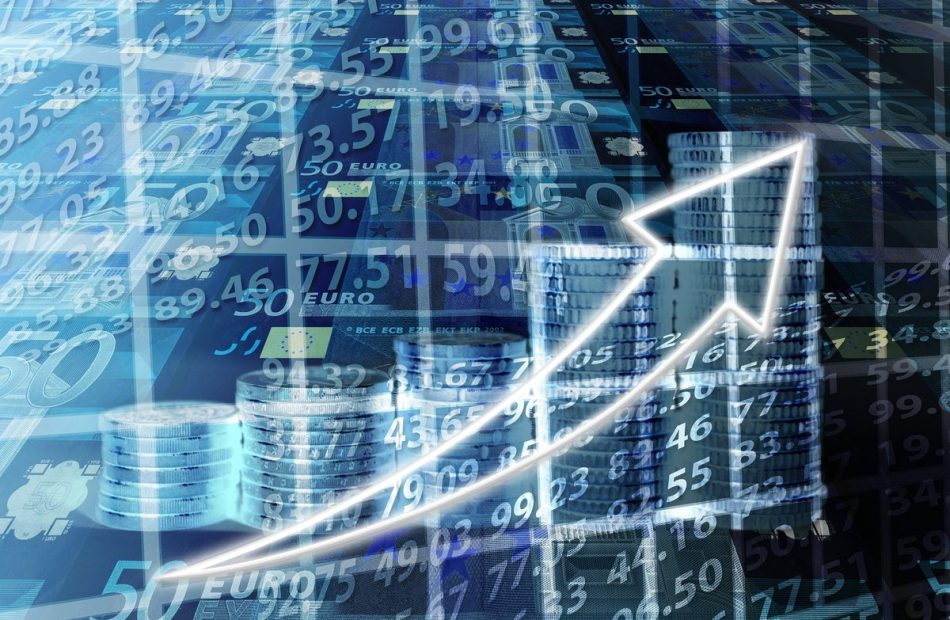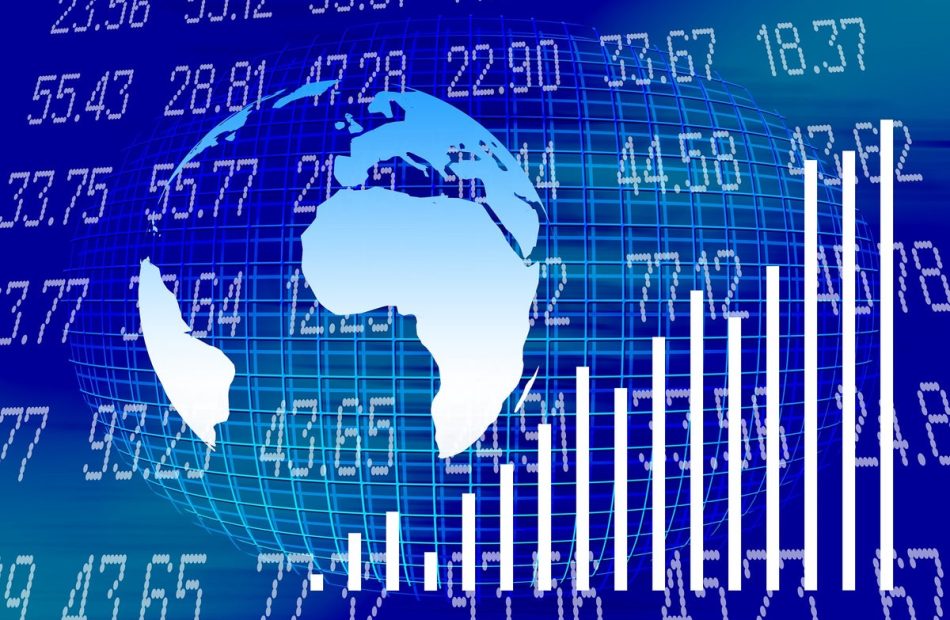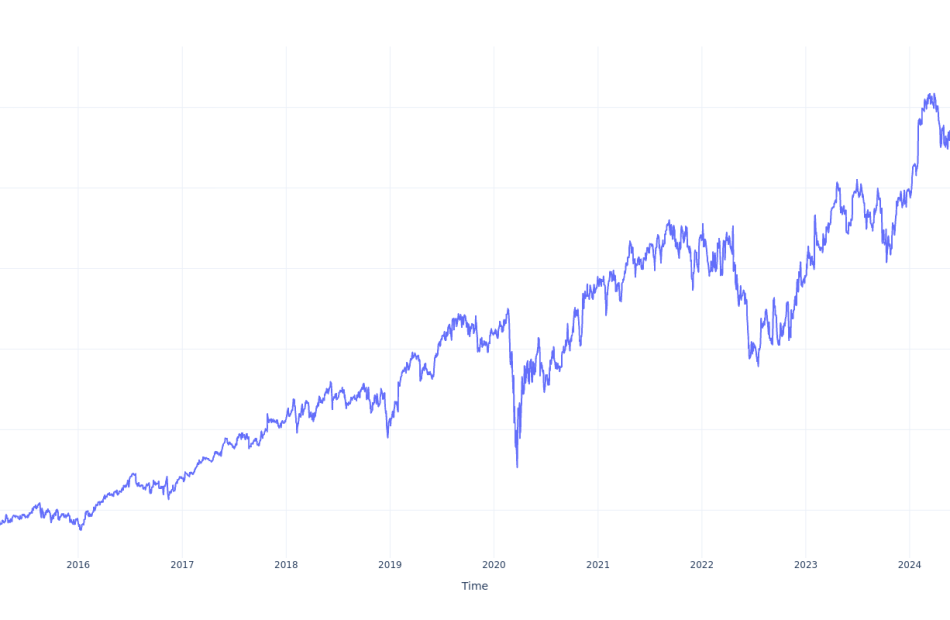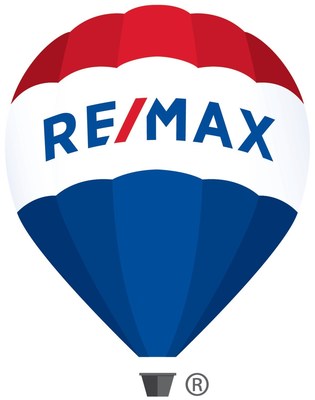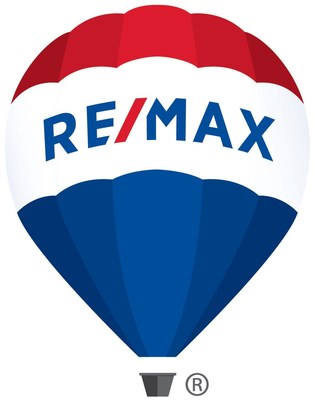Massive Insider Trade At Kinder Morgan
On October 23, a recent SEC filing unveiled that C. Park Shaper, Director at Kinder Morgan KMI made an insider sell.
What Happened: Shaper’s recent Form 4 filing with the U.S. Securities and Exchange Commission on Wednesday unveiled the sale of 900,000 shares of Kinder Morgan. The total transaction value is $22,263,481.
As of Thursday morning, Kinder Morgan shares are up by 0.59%, currently priced at $24.91.
Discovering Kinder Morgan: A Closer Look
Kinder Morgan is one of the largest midstream energy firms in North America, with an interest in or an operator on about 82,000 miles in pipelines and 139 storage terminals. The company is active in the transportation, storage, and processing of natural gas, crude oil, refined products, natural gas liquids, and carbon dioxide. The majority of Kinder Morgan’s cash flows stem from fee-based contracts for handling, moving, and storing fossil fuel products.
Understanding the Numbers: Kinder Morgan’s Finances
Revenue Growth: Kinder Morgan’s revenue growth over a period of 3 months has been noteworthy. As of 30 September, 2024, the company achieved a revenue growth rate of approximately 3.56%. This indicates a substantial increase in the company’s top-line earnings. As compared to competitors, the company encountered difficulties, with a growth rate lower than the average among peers in the Energy sector.
Key Profitability Indicators:
-
Gross Margin: With a high gross margin of 56.45%, the company demonstrates effective cost control and strong profitability relative to its peers.
-
Earnings per Share (EPS): Kinder Morgan’s EPS reflects a decline, falling below the industry average with a current EPS of 0.28.
Debt Management: Kinder Morgan’s debt-to-equity ratio is below the industry average. With a ratio of 1.05, the company relies less on debt financing, maintaining a healthier balance between debt and equity, which can be viewed positively by investors.
Assessing Valuation Metrics:
-
Price to Earnings (P/E) Ratio: The current Price to Earnings ratio of 21.92 is higher than the industry average, indicating the stock is priced at a premium level according to the market sentiment.
-
Price to Sales (P/S) Ratio: A higher-than-average P/S ratio of 3.63 suggests overvaluation in the eyes of investors, considering sales performance.
-
EV/EBITDA Analysis (Enterprise Value to its Earnings Before Interest, Taxes, Depreciation & Amortization): Kinder Morgan’s EV/EBITDA ratio stands at 13.1, surpassing industry benchmarks. This places the company in a position with a higher-than-average market valuation.
Market Capitalization Analysis: Above industry benchmarks, the company’s market capitalization emphasizes a noteworthy size, indicative of a strong market presence.
Now trade stocks online commission free with Charles Schwab, a trusted and complete investment firm.
Exploring the Significance of Insider Trading
In the complex landscape of investment decisions, investors should approach insider transactions as part of a comprehensive analysis, considering various elements.
From a legal standpoint, the term “insider” pertains to any officer, director, or beneficial owner holding more than ten percent of a company’s equity securities as outlined in Section 12 of the Securities Exchange Act of 1934. This encompasses executives in the c-suite and significant hedge funds. These insiders are mandated to inform the public of their transactions through a Form 4 filing, to be submitted within two business days of the transaction.
A company insider’s new purchase is a indicator of their positive anticipation for a rise in the stock.
While insider sells may not necessarily reflect a bearish view and can be motivated by various factors.
Transaction Codes Worth Your Attention
When it comes to transactions, investors tend to focus on those in the open market, detailed in Table I of the Form 4 filing. A P in Box 3 denotes a purchase, while S indicates a sale. Transaction code C signals the conversion of an option, and transaction code A denotes a grant, award, or other acquisition of securities from the company.
Check Out The Full List Of Kinder Morgan’s Insider Trades.
Insider Buying Alert: Profit from C-Suite Moves
Benzinga Edge reveals every insider trade in real-time. Don’t miss the next big stock move driven by insider confidence. Unlock this ultimate sentiment indicator now. Click here for access.
This article was generated by Benzinga’s automated content engine and reviewed by an editor.
Market News and Data brought to you by Benzinga APIs
© 2024 Benzinga.com. Benzinga does not provide investment advice. All rights reserved.
Breaking Update: Nicholas M. Westfall Engages In Options Exercise At Chemed
A large exercise of company stock options by Nicholas M. Westfall, Executive Vice President at Chemed CHE was disclosed in a new SEC filing on October 23, as part of an insider exercise.
What Happened: In an insider options sale disclosed in a Form 4 filing on Wednesday with the U.S. Securities and Exchange Commission, Westfall, Executive Vice President at Chemed, exercised stock options for 0 shares of CHE. The transaction value amounted to $0.
As of Thursday morning, Chemed shares are up by 0.27%, with a current price of $594.75. This implies that Westfall’s 0 shares have a value of $0.
Delving into Chemed’s Background
Chemed Corp operates subsidiaries in two main segments: VITAS and Roto-Rooter. The VITAS segment generates the majority of the firm’s revenue. It provides hospice and palliative care services to patients with terminal illnesses through a network of physicians, registered nurses, home health aides, social workers, and volunteers. The vast majority of the segment’s revenue is received from the Medicare and Medicaid reimbursement programs. The Roto-Rooter segment provides plumbing, drain cleaning, water restoration, and related services to residential and commercial customers. Chemed generates the majority of its revenue from business in the United States.
Chemed’s Financial Performance
Revenue Growth: Chemed displayed positive results in 3 months. As of 30 June, 2024, the company achieved a solid revenue growth rate of approximately 7.6%. This indicates a notable increase in the company’s top-line earnings. As compared to competitors, the company encountered difficulties, with a growth rate lower than the average among peers in the Health Care sector.
Profitability Metrics: Unlocking Value
-
Gross Margin: The company maintains a high gross margin of 34.59%, indicating strong cost management and profitability compared to its peers.
-
Earnings per Share (EPS): Chemed’s EPS is a standout, portraying a positive bottom-line trend that exceeds the industry average with a current EPS of 4.7.
Debt Management: Chemed’s debt-to-equity ratio is below the industry average at 0.12, reflecting a lower dependency on debt financing and a more conservative financial approach.
Understanding Financial Valuation:
-
Price to Earnings (P/E) Ratio: Chemed’s P/E ratio of 30.06 is below the industry average, suggesting the stock may be undervalued.
-
Price to Sales (P/S) Ratio: With a higher-than-average P/S ratio of 3.88, Chemed’s stock is perceived as being overvalued in the market, particularly in relation to sales performance.
-
EV/EBITDA Analysis (Enterprise Value to its Earnings Before Interest, Taxes, Depreciation & Amortization): With a lower-than-industry-average EV/EBITDA ratio of 19.54, Chemed presents a potential value opportunity, as investors are paying less for each unit of EBITDA.
Market Capitalization Analysis: The company exhibits a lower market capitalization profile, positioning itself below industry averages. This suggests a smaller scale relative to peers.
Now trade stocks online commission free with Charles Schwab, a trusted and complete investment firm.
Why Insider Transactions Are Key in Investment Decisions
Insightful as they may be, insider transactions should be considered alongside a thorough examination of other investment criteria.
Considering the legal perspective, an “insider” is defined as any officer, director, or beneficial owner holding more than ten percent of a company’s equity securities, according to Section 12 of the Securities Exchange Act of 1934. This includes executives in the c-suite and major hedge funds. These insiders are mandated to disclose their transactions through a Form 4 filing, to be submitted within two business days of the transaction.
Pointing towards optimism, a company insider’s new purchase signals their positive anticipation for the stock to rise.
Nevertheless, insider sells may not necessarily indicate a bearish view and can be influenced by various factors.
Understanding Crucial Transaction Codes
When analyzing transactions, investors tend to focus on those in the open market, detailed in Table I of the Form 4 filing. A P in Box 3 denotes a purchase,while S signifies a sale. Transaction code C signals the conversion of an option, and transaction code A denotes a grant, award, or other acquisition of securities from the company.
Check Out The Full List Of Chemed’s Insider Trades.
Insider Buying Alert: Profit from C-Suite Moves
Benzinga Edge reveals every insider trade in real-time. Don’t miss the next big stock move driven by insider confidence. Unlock this ultimate sentiment indicator now. Click here for access.
This article was generated by Benzinga’s automated content engine and reviewed by an editor.
Market News and Data brought to you by Benzinga APIs
© 2024 Benzinga.com. Benzinga does not provide investment advice. All rights reserved.
Prospects of a Trump win and huge tariffs spark worst sell-off for emerging market stocks in 10 months
-
Emerging markets stocks are set for their worst monthly decline since January.
-
The slump comes as investors price in higher odds of a Trump win in the upcoming US election.
-
Trump has pledged to drastically raise import tariffs to as high as 20%, and up to 60% for China.
It’s been a tough month for emerging market stocks as the odds of a Donald Trump election win rise — and with it, the odds that his proposed tariff plan will actually see the light of day.
Emerging market stocks are headed for their worst monthly decline since January, with the MSCI Emerging Markets Index falling for a fourth day on Thursday for a 3.1% decline this month.
A select few EM stocks have taken the biggest hits, with Samsung, Alibaba, Tencent, and Meituan accounting for more than half of the index’s fall.
The decline comes as the market prices in higher odds of a win for former President Donald Trump with just two weeks until the election.
On crypto betting market Polymarket, Trump’s odds of winning soared as high as to 66% on Tuesday, their highest since President Joe Biden was still in the race in July. Odds are now slightly lower at 62%.
Polls, meanwhile, are much closer, with the most recent national polling average compiled by RealClearPolitics showing Harris at 48.7% versus 48.5% for Trump.
Trump has proposed raising tariffs on imports from all countries to as high as 20% and has said imports from China would be subject to a 60% tariff.
Investors’ fears of a damaging trade war aren’t unfounded. In 2018, Trump’s trade war with China led to a significant underperformance compared to US stocks, and strategists say the election’s outcome is again pushing investors away from EM shares as uncertainty builds.
“US elections have become a key driver of uncertainty as risk positioning is clearly fluctuating to a more cautious stance. In our recent client interactions, we have sensed global EM investors’ appetite to increase risk budgets over the next weeks may have been significantly reduced,” analysts from Citi wrote in a note last week.
The strategists note that the latest sentiment is a sharp contrast from a month ago, when investors were pricing in higher odds of a Harris win.
“There has been a significant change in investor sentiment, and investors’ risk budgets have likely been changing as a function of that.”
Other factors, like rising geopolitical tensions in the Middle East and a bond market sell-off, are also driving investors away from riskier assets. Investors are also expressing disappointment in China’s stimulus measures, which initially fueled a rally in EM stocks last month.
Read the original article on Business Insider
Ask an Advisor: We're 65, Have $1 Million, and Want to Live on $90K a Year. Is That Feasible?
My wife and I are both 65 years old. She will retire this year and I’ll work until I’m 67. We’ll get about $42,000 in Social Security and have about $1 million in savings. Can we live on $90,000 per year?
-Terry
$90,000 per year is going to be pushing the upper limit of what I’d be comfortable with as a general rule. Whether it will work for you, however, is highly individualized. I’ll give you an overview of some of the things you’ll want to look into before deciding if you are comfortable with spending $90,000 per year. (And if you need more help planning for retirement, consider working with a financial advisor.)
Does Your Expense Number Include Taxes?
Will the $90,000 you expect to spend each year cover your annual tax bill or is that how much money you plan to spend after taxes? The answer to this question is vital. If it’s the latter, you’ll need to withdraw even more of your savings each year, further stressing the longevity of your portfolio.
Whether your savings are held in a tax-deferred, Roth or taxable account matters. I assume your money is mostly tax-deferred, meaning it’s held in 401(k)s and IRAs. You’ll have to account for income taxes that you’ll owe when you start withdrawing that money. If a considerable portion of your assets is in Roth accounts, your distributions are tax-free, which will simply the process. (And if you want more help managing your retirement savings, consider matching with a financial advisor.)
What’s Your Investment Plan and Risk Tolerance?
You need to invest according to your own risk tolerance. But if your portfolio is too conservative or aggressive it will place additional strain on your savings.
-
If you and your wife are especially conservative that will likely inhibit your ability to keep up with that level of spending over time.
-
If you’re too aggressive, you may expose yourself to too much volatility, which can also wreck a retiree’s portfolio once withdrawals start.
The 60/40 portfolio has historically been so popular with retirees because it leaves them with enough equity to benefit from the long-term growth that’s often required for a decades-long retirement without too much volatility. It’s not right for everybody, but the point is that if your entire balance is in CDs, for example, your money likely won’t grow fast enough. The opposite is true for a 100% stock portfolio. It’s too volatile and one or two bad market years, especially early on, could be catastrophic. (A financial advisor can help you find the right mix of stocks, bonds and other investments for your risk tolerance.)
Here's How Much $100 Invested In Stryker 10 Years Ago Would Be Worth Today
Stryker SYK has outperformed the market over the past 10 years by 4.01% on an annualized basis producing an average annual return of 15.33%. Currently, Stryker has a market capitalization of $137.55 billion.
Buying $100 In SYK: If an investor had bought $100 of SYK stock 10 years ago, it would be worth $418.78 today based on a price of $360.95 for SYK at the time of writing.
Stryker’s Performance Over Last 10 Years
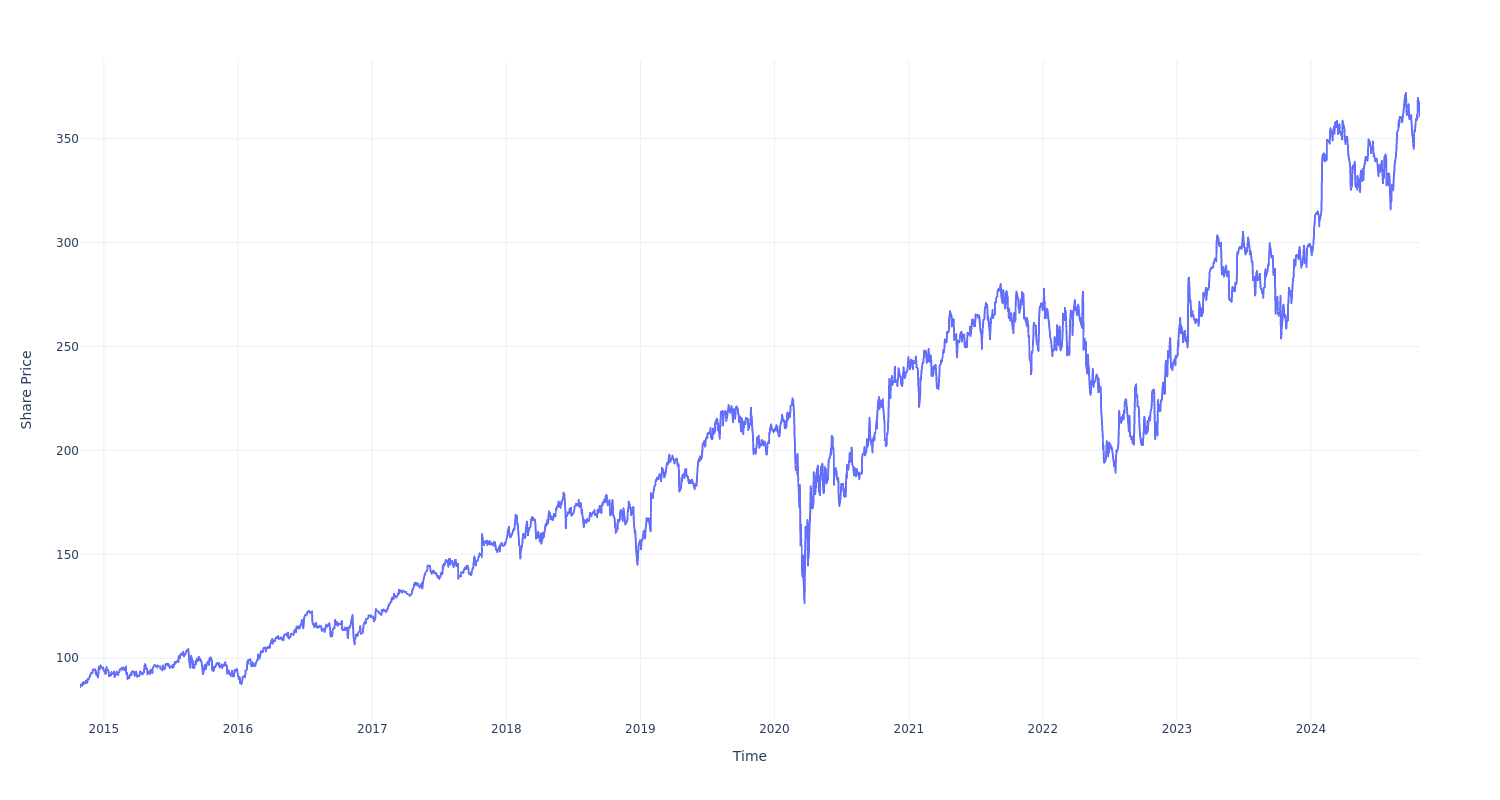
Finally — what’s the point of all this? The key insight to take from this article is to note how much of a difference compounded returns can make in your cash growth over a period of time.
This article was generated by Benzinga’s automated content engine and reviewed by an editor.
Market News and Data brought to you by Benzinga APIs
© 2024 Benzinga.com. Benzinga does not provide investment advice. All rights reserved.
RE/MAX Affiliates Make Worldwide Impact by Giving Back During Global RE/MAX Week
The fourth annual weeklong, philanthropic event drew participation from affiliates around the world
DENVER , Oct. 24, 2024 /PRNewswire/ — RE/MAX, LLC, the #1 name in real estate1, proudly launched its 2024 Global RE/MAX Week, October 6-12. The annual initiative, now in its fourth year, showcased the extensive reach of the network’s more than 140,000 agents and presence in over 110 countries and territories, highlighting the commitment RE/MAX affiliates have to giving back to the communities in which they live and serve. With an unmatched global footprint, the RE/MAX network around the world demonstrated their dedication to making a positive impact while fostering international real estate success.
“This week exemplifies our ability to effect meaningful change around the world while remaining deeply connected to our local markets,” said Shawna Gilbert, Senior Vice President, Global & Commercial, who created and oversees the event.
Participants from more than 40 countries and 22 U.S. states, engaged with #GlobalREMAXWeek, sharing a diverse array of community-focused activities. Some examples include:
- RE/MAX Gateway in Northern Virginia participated for the third consecutive year. Over the course of five days, 59 dedicated agents and staff volunteered at nine events providing 152.5 hours of service.
- In Mongolia, RE/MAX Peak and RE/MAX Sky & Hub affiliates joined together in the “Save the Earth” challenge. The combined efforts of the offices included agents planting trees, picking up trash and donating blood.
- Affiliates with REMAX Ingersoll in Ontario, Canada, donated healthy snacks for all students in Ingersoll Elementary Schools and made additional stops to other youth centers and clubs.
- In Cabo San Lucas, Mexico, agents with RE/MAX Sunset View participated with friends and family in a charity walk for International Cerebral Palsy Day. The funds donated through the walk will be used to purchase wheelchairs for children with cerebral palsy.
The widespread participation not only supported the chosen causes but elevated the spirits of those who participated.
“Throughout Global RE/MAX Week, our team of agents truly embodied the spirit of giving back, contributing their time, energy and resources to help those in need across Northern Virginia,” said Jennifer Morin, Director of Operations with RE/MAX Gateway in Chantilly, Virginia. “From preparing meals and packing essentials to playing with shelter dogs and cleaning and organizing, our agents proved that even small acts of service can make a big difference.”
Maria Elena Vega, Manager with RE/MAX Sunset View in Cabo San Lucas, Mexico, said, “It was a pleasure to be part of the Global RE/MAX Week. It was a very good experience, and we loved contributing to our community and being part of something bigger.”
Next year’s Global RE/MAX Week will take place October 5-11, 2025.
About the RE/MAX Network
As one of the leading global real estate franchisors, RE/MAX, LLC is a subsidiary of RE/MAX Holdings RMAX with more than 140,000 agents in nearly 9,000 offices and a presence in more than 110 countries and territories. Nobody in the world sells more real estate than RE/MAX, as measured by residential transaction sides. RE/MAX was founded in 1973 by Dave and Gail Liniger, with an innovative, entrepreneurial culture affording its agents and franchisees the flexibility to operate their businesses with great independence. RE/MAX agents have lived, worked and served in their local communities for decades, raising millions of dollars every year for Children’s Miracle Network Hospitals® and other charities. To learn more about RE/MAX, to search home listings or find an agent in your community, please visit www.remax.com. For the latest news about RE/MAX, please visit news.remax.com.
1 Source: MMR Strategy Group study of unaided awareness
![]() View original content to download multimedia:https://www.prnewswire.com/news-releases/remax-affiliates-make-worldwide-impact-by-giving-back-during-global-remax-week-302286266.html
View original content to download multimedia:https://www.prnewswire.com/news-releases/remax-affiliates-make-worldwide-impact-by-giving-back-during-global-remax-week-302286266.html
SOURCE RE/MAX, LLC
Market News and Data brought to you by Benzinga APIs
© 2024 Benzinga.com. Benzinga does not provide investment advice. All rights reserved.

